UNAI 2025
workshop at ISMAR

Universal Augmented Interaction (UNAI) 2025
workshop at IEEE International Symposium on Mixed and Augmented Reality (ISMAR) — October 12, 2025 in Daejeon, South Korea
About UNAI 2025
The 4th workshop on Universal Augmented Interaction (UNAI) will be held as part of ISMAR 2025 (the A* leading conference on mixed and augmented reality). The previous editions of our workshop have been successfully held at ISMAR 2021, ISMAR 2022 and ISMAR 2023.
This year UNAI’s motto is going to be “Accessible and Neurosecure Augmented Reality”. The UNAI workshop will bring in original research, review and position papers, as well as practical developments dedicated to various types of augmented interaction, including AI-enhanced interfaces and generated content, neural technologies, etc. The focus is on making today’s VR/AR safe and universally applicable, usable and accessible for all kinds of users, including non-technologically advanced ones, such as elder people, and in all contexts: at home and at work, in medicine/healthcare and in industry, as momentary entertainment and as everyday job. As with previous editions of our workshop, the scope involves human factors aspects and social implications, rather than technological nuances.
UNAI 2025 will be held in face-to-face format, but motivated exceptions (online presentations) might be possible.
The era of generative content is upon the humankind! For the first time in the evolutionary history, our mind is pervasively experiencing multi-modal signals produced not by other living beings, but by mathematical models. We do not yet have an understanding of this phenomenon’s lasting effects on human cognition and behaviour. This especially concerns Virtual and Augmented Reality, which is known to “amplify” affections, particularly for inexperienced user groups. We believe that studying the new neural engagements’ potential benefits and threats is urgently called for.
The UNAI 2025 themes and topics of interest include but are not limited to:
Theme 1: Accessibility in Virtual and Augmented Reality
• Adaptive AR environments for cognitive and sensory impairments • Adaptive feedback mechanisms in AR • Evaluating accessibility, security, and user experience (UX) • Evaluation frameworks for accessibility and security in AR • Intelligent assistants and conversational agents in AR • Personalization and adaptation in AR • Technology acceptance and social implications • User-centered methodologies for accessible AR developmentTheme 2: Human-Computer Interaction
• Agent-based interactions • Content creation / authoring and content management • Cross-modal interaction techniques • Explainability and transparency in AI-assisted UI design • Human sensory systems and perception in AR • Human-machine intelligence systems • Novel VR/AR interaction paradigmsTheme 3: Neurosecurity and Neurotechnology in AR
• Detection and mitigation of neural attacks and manipulations • Evaluating cognitive and emotional factors • Neuroadaptive AR Systems for personalized UX • Neuroethical and societal considerations • Neurosecurity: challenges and solutions • Real-time neurofeedback integration • Safe and efficient Brain-Computer Interfaces (BCIs) • User privacy and data protection in AI-AR systemsTheme 4: AR for human well-being and ergonomics
• Applications in healthcare and medicine • AR and AI in business processes • AR-based technologies for successful ageing • Ergonomics and human factors in AR • Inclusive and efficient AR • Practices and standards for AI-generative content • Psychotherapy and rehabilitation with VR/ARImportant Dates
- Abstract submission deadline:
20th of July27th of July, 2025 - Full paper submission deadline (only for submitted Abstracts): 31st of July, 2025
- Acceptance notifications issued:
1st of August8th of August, 2025 - Camera-ready materials: 15th of August, 2025
- Workshop date: 12th of October, 2025 (final day of the ISMAR conference)
All dates are Anywhere on Earth (AoE) Time Zone.
Papers Submission:
Authors are invited to submit original contributions in English. All submissions will be peer reviewed by the technical program committee members. The submission needs to be done via EasyChair. If you already have an account with that system, please use that account to submit your materials. Otherwise, create a new account.
Please use the IEEE Computer Society VGTC template and follow the Author Guidelines specified for ISMAR papers.
Contribution types:
Research, review or position papers: 4-6 pages excluding references
Demo / practical papers: 2-4 pages excluding references, plus a video of up to 5 minutes.
Accepted papers will be published in ISMAR Adjunct Proceedings to appear in IEEE Xplore and to be indexed by Scopus. For each accepted paper, at least one author must attend the workshop and present the paper.
Please see the registration information at ISMAR 2025 website.
List of accepted papers:
- Ratna Permata Sari, Qi Wang and Hong-In Cheng. Exploring Immersive Virtual Reality Effects in Occupational Safety Training
- Clare Heinbaugh and Per Ola Kristensson. Towards Novel Gesture Recognition for Real-Time Code Generation in Extended Reality
- Yanming Xiu, Shunav Sen, Joshua Chilukuri and Maria Gorlatova. A Systematic Evaluation on Audio-Based 3D Content Generation Methods in Augmented Reality
- Ayko Schwedler, Celestina Hermida da Costa, Leon Korkmaz, Rateb Karanzie, Lucie Kruse, Ke Li, Fariba Mostajeran and Frank Steinicke. Nuance in Non-Verbal Communication: How Emotional Granularity Impacts Perception of Intelligent Virtual Agents in Virtual Reality
- Francesco Musolino, Mine Dastan, Azar Yazdanichamzini, Maxim Bakaev and Michele Fiorentino. MoodRoom: Design of digital environments inspired by immersive Moodboard: a case study in interior design
The workshop program (preliminary, version 0.9)
Program Committee:
- Mine Dastan (PhD), Politecnico Di Bari, Italy
- Valeriia Demareva (PhD), Lobachevsky State University of Nizhni Novgorod, Russia
- Michele Fiorentino (PhD), Politecnico Di Bari, Italy
- Julián Grigera (PhD), LIFIA, National University of La Plata, Argentina
- Ji Eun Han (PhD), Hanyang University, Korea
- Radka Nacheva (PhD), Varna University of Economics, Bulgaria
- Roberto Pereira (PhD), Federal University of Paraná, Brazil
- Elakkiya R (PhD), BITS Pilani Dubai Campus, UAE
- Dmitry Ryumin (PhD), Higher School of Economics, Russia
Workshop Chairs

Maxim Bakaev got his PhD degree in Software Engineering in 2012. He currently works as an Associate Professor and Department Head of the Data Collection and Processing Systems department of Novosibirsk State Technical University (NSTU), Russia. Previously, he received his Master Degree in Digital Design from Kyungsung University, South Korea. His research interests include Human-Computer Interaction (HCI), Human-AI Interaction, Information Systems, Human Information Processing, Data Quality, Kansei Engineering, User Interfaces, Universal Design.
He also served as a reviewer for several international conferences and journals, including CHI, TheWebConf, International Journal of Human-Computer Studies, Expert Systems with Applications, Behavioral Sciences, etc. In 2016, he received the Novosibirsk City award in science and innovations to a “Best young researcher in higher education institutions”. Under his supervision, over 30 Master and Bachelor students graduated.

Maxim Bakaev got his PhD degree in Software Engineering in 2012. He currently works as an Associate Professor and Department Head of the Data Collection and Processing Systems department of Novosibirsk State Technical University (NSTU), Russia. Previously, he received his Master Degree in Digital Design from Kyungsung University, South Korea. His research interests include Human-Computer Interaction (HCI), Human-AI Interaction, Information Systems, Human Information Processing, Data Quality, Kansei Engineering, User Interfaces, Universal Design.
He also served as a reviewer for several international conferences and journals, including CHI, TheWebConf, International Journal of Human-Computer Studies, Expert Systems with Applications, Behavioral Sciences, etc. In 2016, he received the Novosibirsk City award in science and innovations to a “Best young researcher in higher education institutions”. Under his supervision, over 30 Master and Bachelor students graduated.
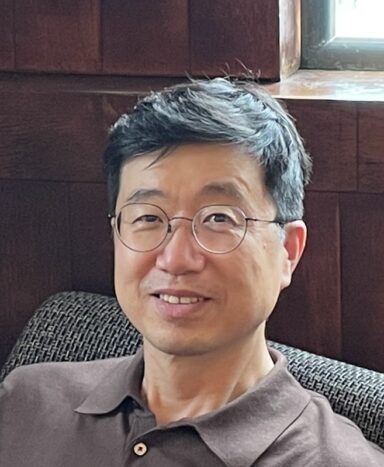
Hong-In Cheng received his Ph.D. from Iowa State University in 2002 and has been a professor at Kyungsung University since 2003. He is an expert in ergonomics, and he has served as a board member and vice president of the Ergonomics Society of Korea. His current activities include serving on the editorial board of the society's academic journal and other related journals. He has also worked as an expert reviewer for ICT/SW (UI/UX) technology evaluations for the Korean government. His research has recently expanded into the field of occupational safety and health.
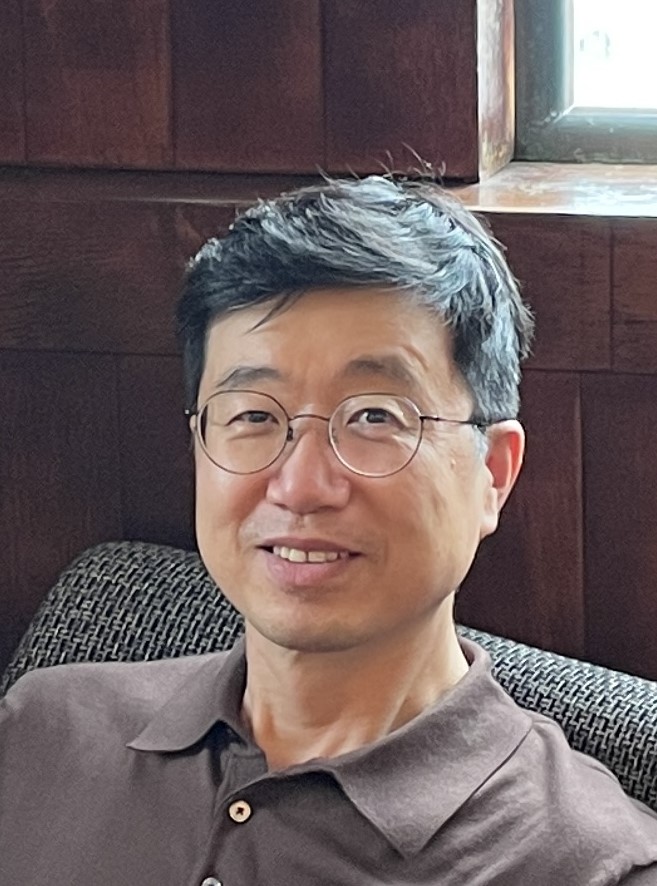
Hong-In Cheng received his Ph.D. from Iowa State University in 2002 and has been a professor at Kyungsung University since 2003. He is an expert in ergonomics, and he has served as a board member and vice president of the Ergonomics Society of Korea. His current activities include serving on the editorial board of the society's academic journal and other related journals. He has also worked as an expert reviewer for ICT/SW (UI/UX) technology evaluations for the Korean government. His research has recently expanded into the field of occupational safety and health.

Kyungdoh Kim is an Associate Professor in the Department of Industrial and Data Engineering at Hongik University in Seoul, South Korea. He earned his Ph.D. in Industrial Engineering from Purdue University. His primary research interests lie in human-computer interaction, focusing on usability interface design and engineering, menu design, and product design. He leads the UX Lab, which conducts research aimed at enhancing user experience (UX). The lab's projects include improving user experiences in metaverse systems, developing virtual reality environments using head-mounted displays (HMDs), and designing user interfaces that enhance usability.

Kyungdoh Kim is an Associate Professor in the Department of Industrial and Data Engineering at Hongik University in Seoul, South Korea. He earned his Ph.D. in Industrial Engineering from Purdue University. His primary research interests lie in human-computer interaction, focusing on usability interface design and engineering, menu design, and product design. He leads the UX Lab, which conducts research aimed at enhancing user experience (UX). The lab's projects include improving user experiences in metaverse systems, developing virtual reality environments using head-mounted displays (HMDs), and designing user interfaces that enhance usability.
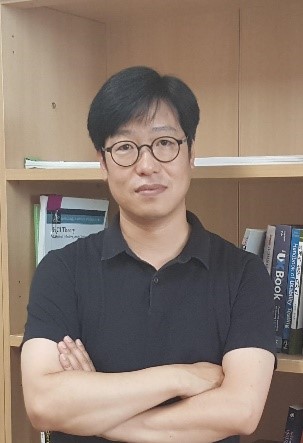
Gyu Hyun Kwon is a Professor at the Graduate School of Technology & Innovation Management at Hanyang University. In Addition, he also serves as Deputy Director of the Hanyang Institute of Entrepreneurship. He received his Ph.D. in Industrial and Systems Engineering from Virginia Tech, and both his B.S. and M.S. in Industrial Engineering from KAIST.
His research interests include human-computer interaction (HCI), cognitive systems engineering, and collaborative systems in virtual environments. He has led international collaborative research projects, notably the development of VR technologies for executive function assessment in partnership with French research teams. Professor Kwon is particularly interested in the dynamics of collaboration among diverse agents in virtual spaces and has served as a workshop organizer at major HCI conferences.
Professor Kwon’s academic and professional activities include value-driven innovation, digital service innovation, and the design of human-AI collaborative systems. He has overseen more than 30 government and industry-academic research projects and has received recognition such as the IF Design Award in the UX category.

Gyu Hyun Kwon is a Professor at the Graduate School of Technology & Innovation Management at Hanyang University. In Addition, he also serves as Deputy Director of the Hanyang Institute of Entrepreneurship. He received his Ph.D. in Industrial and Systems Engineering from Virginia Tech, and both his B.S. and M.S. in Industrial Engineering from KAIST.
His research interests include human-computer interaction (HCI), cognitive systems engineering, and collaborative systems in virtual environments. He has led international collaborative research projects, notably the development of VR technologies for executive function assessment in partnership with French research teams. Professor Kwon is particularly interested in the dynamics of collaboration among diverse agents in virtual spaces and has served as a workshop organizer at major HCI conferences.
Professor Kwon’s academic and professional activities include value-driven innovation, digital service innovation, and the design of human-AI collaborative systems. He has overseen more than 30 government and industry-academic research projects and has received recognition such as the IF Design Award in the UX category.
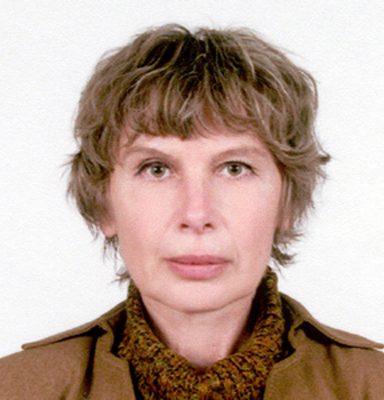
Olga Razumnikova got her Dr.-Habil. degree in Psychophysiology in 2003. She has developed several cognitive training programs for senior people to promote cognitive reserves in older age. She served as Chair for Symposium “Compensatory resources of the brain in health and disease” (2019) and for "Cognitive-behavioral rehabilitation: clinical and socio-demographic aspects" (2025) , Section Chair for “Dynamics of cognitive systems” within the National Congress on Cognitive Research (2020), etc. She also serves as reviewing expert for the Russian Foundation for Basic Research and several scientific journals, such as Human Physiology, Experimental Psychology, etc. Her work was awarded as “The Best Research of NSTU” in 2016. She has been the advisor to over 10 PhD students.
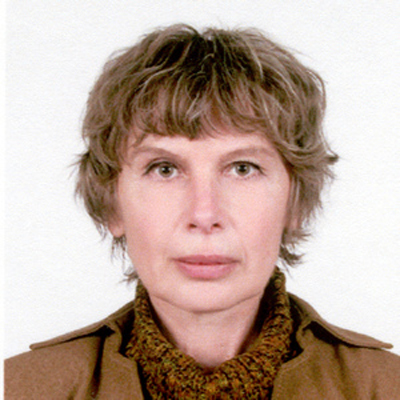
Olga Razumnikova got her Dr.-Habil. degree in Psychophysiology in 2003. She has developed several cognitive training programs for senior people to promote cognitive reserves in older age. She served as Chair for Symposium “Compensatory resources of the brain in health and disease” (2019) and for "Cognitive-behavioral rehabilitation: clinical and socio-demographic aspects" (2025) , Section Chair for “Dynamics of cognitive systems” within the National Congress on Cognitive Research (2020), etc. She also serves as reviewing expert for the Russian Foundation for Basic Research and several scientific journals, such as Human Physiology, Experimental Psychology, etc. Her work was awarded as “The Best Research of NSTU” in 2016. She has been the advisor to over 10 PhD students.
